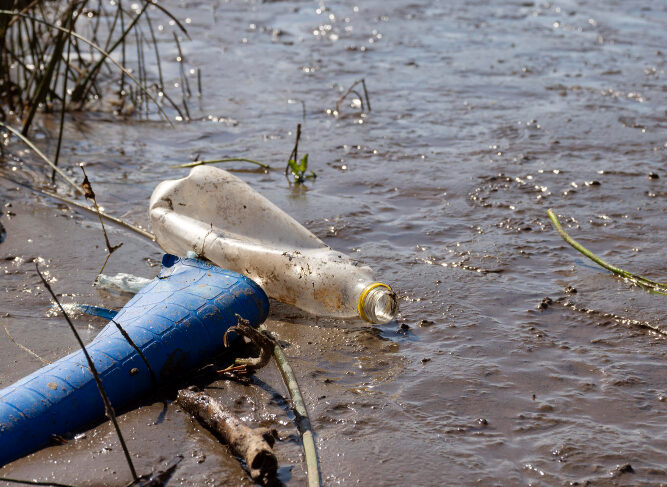More than 1,800 swimmers report illness from contaminated UK waters as public health crisis deepens
Suzi Finlayson never imagined a routine swim in the sea would lead to open-heart surgery. But after taking a dip in the sewage-polluted waters of Bognor Regis, the 42-year-old mother fell critically ill with blood poisoning and developed life-threatening infective endocarditis. Her story is now one of hundreds echoing a wider public health emergency as sewage spills across Britain reach record highs.
A new report from campaign group Surfers Against Sewage (SAS) reveals the scale of the crisis. In 2024 alone, sewage was dumped into UK waterways 592,478 times, amounting to 4.7 million hours of pollution. Despite this, shareholders of private water companies received a staggering £1.2 billion in payouts. Meanwhile, the human toll continues to mount.
SAS logged 1,853 cases of illness reported via its Safer Seas and River Service app last year. Of those, 331 people sought medical care, many for severe infections including gastroenteritis, chest complications, and bacterial illnesses. Around 79 per cent of them were told by doctors that sewage pollution was the likely cause. The economic fallout? Over £490,000 in lost productivity from an estimated nine years’ worth of sick days.
Finlayson, a keen sea swimmer, had been swimming two to three times a week before disaster struck. Southern Water later confirmed that three sewage overflow pipes at Aldwick Beach had discharged waste for 343 continuous hours—nearly two weeks—at the time of her exposure.
“I became critically ill and spent six weeks in hospital care,” she said. “This experience has completely changed my life. I’ve faced a long recovery, ongoing health challenges, and the financial strain of shutting down my business. I don’t trust the water industry. There’s zero transparency or accountability. It’s people’s lives at stake.”
Her story is not isolated. In another case, 28-year-old Charlie Clarke collapsed the day after swimming at Clevedon Marine Lake during training for an Ironman race. He spent four months in the hospital undergoing tests. Doctors eventually linked a virus in the water to a heart-related episode triggered by dangerously low blood pressure.
Despite the outcry, water companies failed to meet their pollution reduction targets in 2024, racking up 2,489 recorded spills—more than double the Environment Agency’s benchmark. Some of the worst-affected spots include Wallasey in Wirral, which recorded 2,201 discharges, the Dart Estuary with 1,553, and Plymouth Hoe East with 1,511.
Frustration is boiling over. According to a SAS-commissioned survey of 2,000 adults, 27 per cent have considered withholding payment of their water bills in protest, and only one in three believe water companies will take serious action to stop the pollution.
The timing could not be worse. From this month, water bills are set to rise by up to 47 per cent across England and Wales. By 2030, customers will pay an average of £160 more annually than in 2024.
Embed from Getty ImagesThe government is now under pressure. The Independent Water Commission is conducting a review into the future of the privatised water sector. A public call for evidence closes on 23 April. Campaigners are demanding radical reform, including greater financial transparency, stricter enforcement, and an end to shareholder rewards where pollution laws are breached.
SAS CEO Giles Bristow did not hold back. “The water industry fails, fails, and fails again—and yet still comes up smelling of roses. Our rivers, lakes, and coastlines suffer the stench of pollution while companies cash in,” he said.
“The model is broken. Around the world, water is managed locally. But in England, 100 per cent private ownership has proved catastrophic. It’s time for a reset—one that ends pollution for profit and prioritises public health, clean water, and fair value for customers.”
A spokesperson for Water UK, the industry’s trade body, said they welcomed the Commission’s review, adding: “We have been clear that the water system is not working.”
But for Suzi Finlayson and many others, that admission comes too late.
THE GUARDIAN
Water companies in England recorded 2,487 pollution incidents in 2024—a 30% rise and the highest in a decade—despite being set a target to cut incidents by 40%. The figures, revealed through a freedom of information request and analysed by Surfers Against Sewage, show widespread failure to meet environmental obligations. The charity also logged 1,853 cases of suspected illness linked to sewage-contaminated water, with 331 requiring medical attention. In one case, a swimmer suffered long-term heart issues after exposure. Despite these failures, shareholders received £1.2 billion in payouts during 2023–24. Meanwhile, water bills are set to rise by an average of £123 annually under a new investment plan. Campaigners say urgent reform is needed, citing England’s fully privatised water system as a key problem. Water UK insists £12 billion is being invested to reduce spills by 2030, but critics argue past promises have been broken and public health is still being put at risk.
ENVIRONMENT JOURNAL
Public anger is intensifying over Britain’s worsening water pollution crisis, with just a third of UK residents believing water firms will clean up the country’s waterways. In 2024 alone, over 2,400 pollution events were recorded and raw sewage was discharged nearly 600,000 times, totalling 4.7 million hours—despite firms paying £1.2 billion to shareholders. Health consequences are rising, with five people falling ill daily from polluted water, costing the economy around £493,000 in lost productivity. Notable cases include Suzi Finlayson, who developed life-threatening blood poisoning, and Charlie Clarke, who suffered heart complications from contaminated water. Calls for radical reform are growing, as watchdog Ofwat investigates all water firms while facing criticism for its close ties to the industry. The Environment Agency, accused of lax oversight due to budget cuts, is under fire too. Under Labour’s new government, public trust remains low amid rising bills and escalating environmental and health damage.
